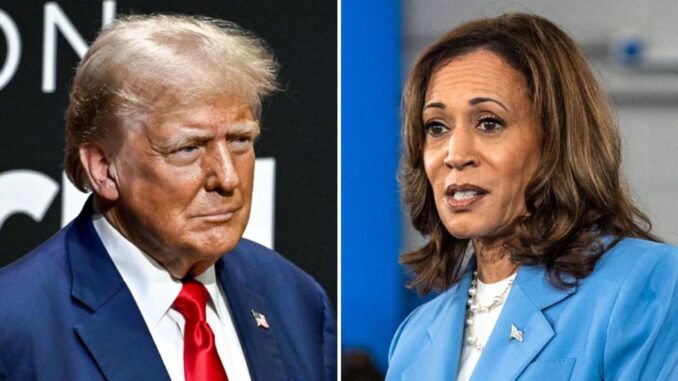
Former Vice President Kamala Harris and former President Donald Trump are locked in a tight race as November’s presidential election nears.
This scenario has inspired economist and former CIA advisor Jim Rickards to offer his thoughts on what the country may expect from a Harris presidency.
According to several important indicators that Rickards has outlined, if Kamala Harris is elected president, the US economy may encounter serious difficulties.
As Yahoo Finance reported, here are a few things outlined by Rickards:
Market Volatility: The financial markets are currently experiencing heightened volatility, reflecting investor uncertainty about the future. A Harris presidency could amplify these concerns, especially if her policies are perceived as unpredictable or overly progressive, leading to further market instability.
Rising National Debt: The U.S. national debt is already at unprecedented levels, and Harris’ potential policy initiatives, which may include expanded social programs and infrastructure spending, could exacerbate this burden. Without careful fiscal management, the increased debt could strain the economy and limit her administration’s ability to respond to economic downturns.
Inflation Pressures: Inflation has been a growing concern, and Harris may face difficulties in curbing rising prices. Her administration’s potential focus on wage growth and social equity could inadvertently fuel inflation, making it harder to maintain price stability without stifling economic growth.
Deepening Political Division: The country is more politically divided than ever, and Harris’ presidency might deepen these divisions, particularly if her policies are seen as favoring certain groups over others. This could lead to gridlock in Congress, making it challenging to pass legislation necessary to stabilize the economy and address pressing issues.
Based on all of these signs, the Harris administration is going to have to deal with a challenging and uncertain economic environment.
This comes as Trump looks to have made impressive gains over Harris, gaining roughly 14 points among independents and 19 points among Latino voters.
According to new polling from NPR/PBS News/Marist, Trump has surpassed Harris by three points among independents in a multi-candidate race, 49% to 46%. This represents a considerable increase since August, when Trump trailed Harris, 59, by 11 points, 48% to 37%.
Robert F. Kennedy Jr., who had received 12% of the vote in the previous survey, withdrew from the contest and endorsed Trump in the interim between the August and September polls. Furthermore, Harris’s “honeymoon” following her sudden ascent to the nomination has started to level out.
In August, Trump led Harris by fifteen points, 54% to 39%, among Latino voters; by now, Trump leads by four points, with 51% of the vote to Harris’s 47%.
“When Trump and Harris square off in Philadelphia, the stakes are sky-high because the contest is so close,” Dr. Lee M. Miringoff, director of the Marist Institute for Public Opinion, explained.
“Only single digits separate the candidates on most issues important to voters. But voters who value honesty are overwhelmingly for Harris, and voters looking for strong leadership are mostly in Trump’s corner. Will this still be the case on Wednesday morning?”
According to the poll, almost 70% of Americans said they would watch the debate, and 30% of registered voters think it would influence their decision on who to support. However, 69% of respondents say it probably won’t be beneficial.
In another encouraging development for Trump, he narrowed the deficit against Harris in a national contest by two points, with the vice president barely edging him.
In the most recent survey of those registered to vote in a contest with several candidates, Harris defeated Trump 49% to 48%. When registered voters were pitted against multiple candidates back in August, Harris was leading 48% to 45%.
In contrast, among registered voters, Trump defeated President Biden 43% to 42% in the July survey.
Leave a Reply